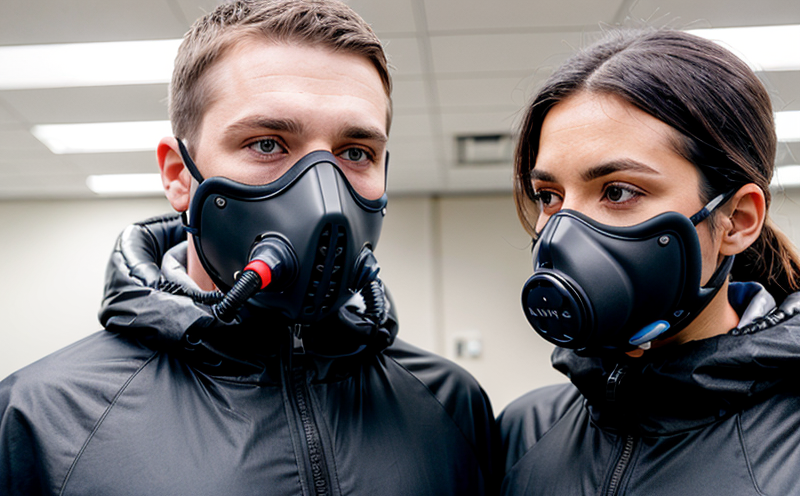NFPA 1984 CBRN Respirator Testing
The NFPA 1984 standard specifically addresses chemical, biological, radiological, and nuclear (CBRN) respirators designed for use in environments where these hazards are present. This service focuses on the rigorous testing required to ensure that respirators meet the stringent performance criteria outlined by this standard.
Our laboratory is equipped with advanced instrumentation and experienced personnel who can perform a comprehensive suite of tests as per NFPA 1984 requirements. These tests include pressure resistance, seal integrity, filtration efficiency, and more. We also conduct fit testing to ensure that the respirator fits properly for each user.
CBRN respirators are critical safety equipment used in high-risk environments such as military operations, emergency response, and industrial facilities. The primary goal of this service is to provide reliable data that can be used by quality managers and compliance officers to ensure their organization's respiratory protection meets the highest standards of safety and effectiveness.
Our testing process begins with a thorough review of the respirator design and specifications to identify any potential areas for improvement or additional testing. We then proceed with the appropriate tests, which may include:
- Filtration efficiency testing
- Pressure resistance testing
- Seal integrity testing
- Fit testing
The results of these tests are meticulously documented and reported in a manner that is clear and actionable. Compliance officers can use this information to ensure their organization's safety protocols are up-to-date and effective.
In addition to the technical aspects, we also consider the environmental impact of CBRN respirator design and usage. Our testing process ensures that respirators meet not only human health standards but also contribute positively to sustainability efforts by minimizing waste and promoting efficient use.
Benefits
- Enhanced Safety: Ensures compliance with NFPA 1984, thereby enhancing the safety of personnel in hazardous environments.
- Rigorous Testing: Our laboratory uses advanced instrumentation to perform comprehensive tests as per the standard's requirements.
- Compliance Assurance: Provides reliable data that can be used by quality managers and compliance officers for regulatory compliance.
- Environmental Impact Reduction: Ensures that respirator design contributes positively to sustainability efforts by minimizing waste and promoting efficient use.
By adhering to the NFPA 1984 standard, organizations can ensure that their respiratory protection meets the highest standards of safety and effectiveness. This not only protects personnel but also enhances organizational reputation as a leader in occupational safety and environmental responsibility.
Customer Impact and Satisfaction
Our clients benefit from our NFPA 1984 CBRN Respirator Testing service by achieving regulatory compliance, enhanced safety, and improved performance of their respiratory protection equipment. Compliance officers can use the reliable data provided to ensure that their organizations meet all necessary standards.
- Regulatory Compliance: Ensures that respirators meet NFPA 1984 requirements, thereby avoiding potential penalties for non-compliance.
- Safety Enhancement: Provides peace of mind knowing that respiratory protection is effective and reliable in hazardous environments.
- Better Performance: Our testing process identifies any areas for improvement in respirator design or usage, leading to better performance.
We strive to exceed customer expectations by providing accurate, timely results and clear, actionable recommendations. This ensures that our clients can make informed decisions about their respiratory protection needs, ultimately contributing to a safer working environment.
Environmental and Sustainability Contributions
The testing of CBRN respirators under NFPA 1984 standards also contributes positively to environmental sustainability. By ensuring that the design and usage of these respirators minimize waste and promote efficient use, we help organizations reduce their ecological footprint.
In addition to regulatory compliance, our service emphasizes sustainable practices. We work closely with clients to identify areas where they can reduce resource consumption and improve operational efficiency. This includes recommending alternative materials or designs that are more environmentally friendly without compromising safety.
Our laboratory is committed to reducing its own environmental impact by adopting energy-efficient technologies and minimizing waste generation. By offering this service, we contribute to a broader goal of sustainability in occupational safety and health.





